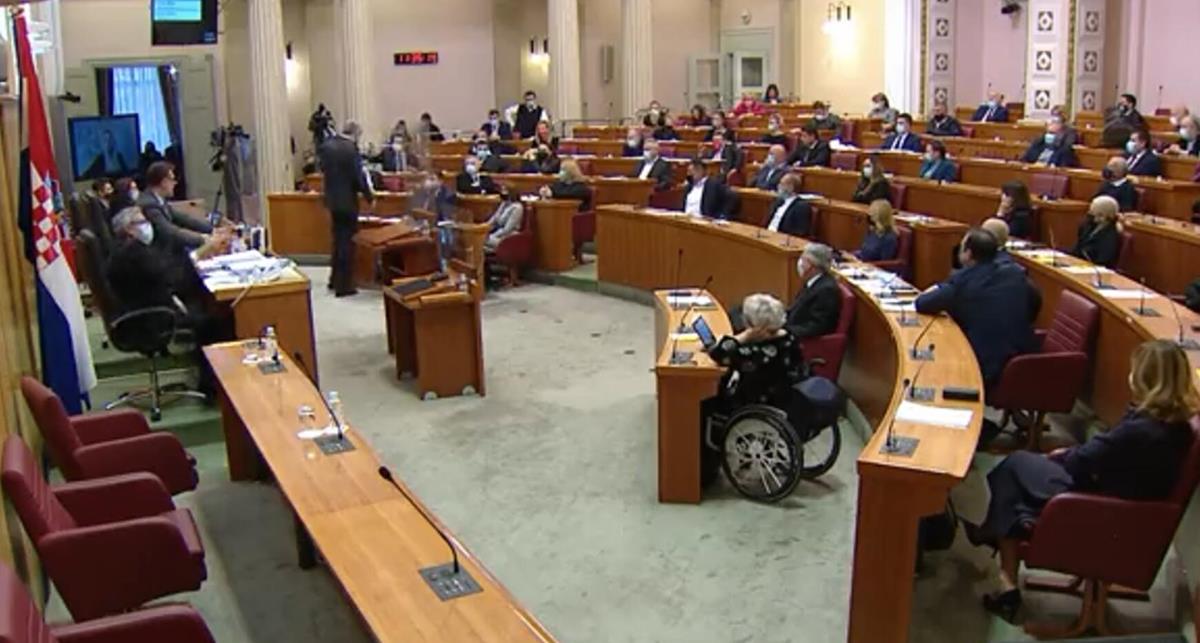Ustasha outrage erupted in the Croatian Parliament! Damir Biloglav, a member of the DOO club, ended his speech with the Ustasha salute “Dom spremni” and set the parliament on fire. He claims that those who condemn this salute do not understand the context of the Homeland War and will never grasp what lies behind it. Biloglav insisted that Ustasha are not the same as other WWII factions, and at the end of his speech shouted “Dom spremni” from the parliamentary podium. The reactions were fierce, especially from Marin Živković of the Možemo party, who called on the Speaker of Parliament Gordan Jandroković to react. However, Jandroković refused to impose any sanctions, stating that we live in a democracy and everyone can speak as they wish.
This incident came shortly after the controversial concert of Marko Perković Thompson at the Zagreb Hippodrome, attended by about half a million people. Prime Minister Andrej Plenković called the concert a great event and success, dismissing opposition criticism that it was a political gathering promoting fascism or Ustasha ideology. He said that individual cases of unauthorized symbols and salutes are separate from the music itself and that the police will prosecute these incidents. The government did not organize the concert; the permit was given by the City of Zagreb.
These two events highlight deep divisions in Croatian society over issues of Ustasha legacy, history, and national identity. While some see “Dom spremni” as a salute symbolizing patriotism and the struggle in the Homeland War, others consider it an unacceptable and unconstitutional symbol of a fascist past. The Speaker of Parliament and the Prime Minister have taken a tolerant stance towards these outbursts, which has sparked further controversy and dissatisfaction among parts of the public and political actors.
Zagreb Mayor Tomislav Tomašević condemned the incident in Parliament and reminded that the Constitutional Court in 2016 unequivocally declared the Ustasha salute “Dom spremni” unconstitutional. It is clear that Croatia is still struggling with the legacy of the past and tensions around these symbols are far from calming down.
If you think this is just another political soap opera, think again. Such scenes in parliament and massive concerts with controversial symbols are not just matters of history – they are matters of Croatia’s future. So, what do you think? Is “Dom spremni” just a part of the past or a dangerous message for the future? Drop a comment, let the people’s voice be heard!






















